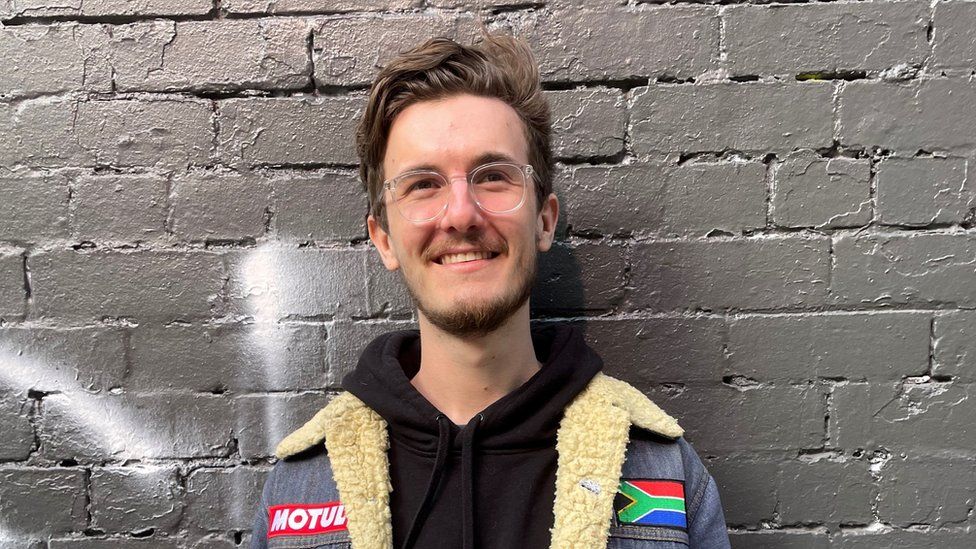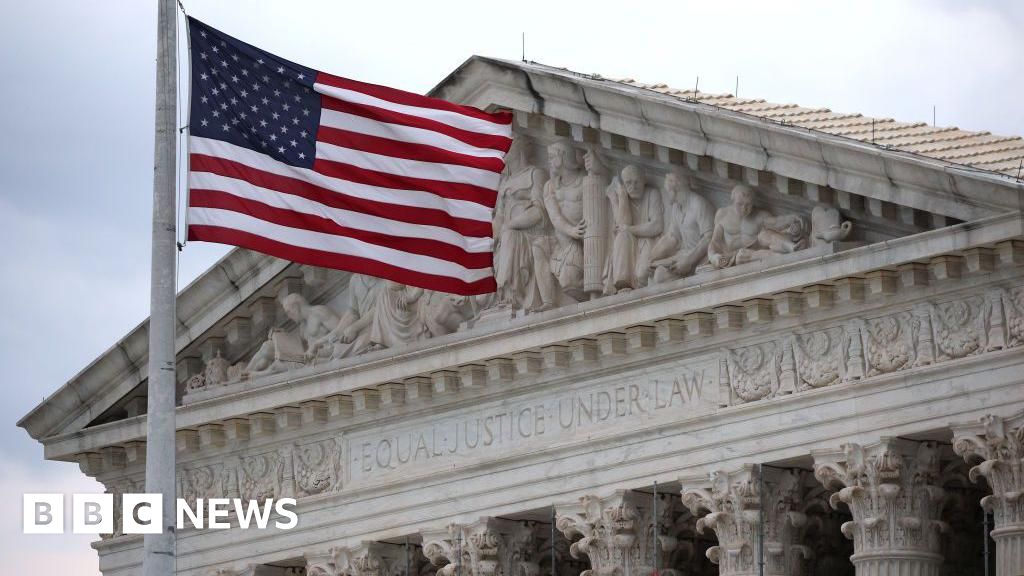ARTICLE AD BOX
 Image source, Jordan van den Berg
Image source, Jordan van den Berg
Jordan van den Berg's advocacy started as a joke on TikTok
By Tiffanie Turnbull
BBC News, Sydney
Three years ago, lawyer Jordan van den Berg was an obscure TikTok creator who made videos that mocked real estate agents.
But today the 28-year-old is one of the most high-profile activists in Australia.
Posting under the moniker Purple Pingers, Mr van den Berg has been taking on the nation's housing crisis by highlighting shocking renting conditions, poor behaviour from landlords, and what he calls government failures.
It is his vigilante-style approach - which includes helping people find vacant homes to squat in, and exposing bad rentals in a public database - that has won over a legion of fans.
Some have dubbed him the Robin Hood of renters.
But Mr van den Berg's unorthodox methods have also brought him enemies and stirred controversy in Australia, and now abroad too.
Rental woes rampant
It's no question that housing in Australia is in crisis. Experts say almost everything has gone wrong.
Buying a home is astronomically expensive, overwhelming a rental market already in shortage, and there is nowhere near enough public housing to fill the gaps.
The crunch has sent rents to record highs and vacancy rates to record lows, forcing many Australians into insecure, unaffordable, overcrowded or unsafe housing - or homelessness.
Bearing the worst of the crisis are the young and the vulnerable. Mr van den Berg sums up the situation with an expletive.
He adds: "We had old people, who benefitted from… really, really generous housing policy, pull the ladder up behind them, and then leave young people to just figure it out on their own."
Mr van den Berg is now a homeowner himself - he's quick to acknowledge he's from a privileged background - but says he also knows what it's like to be a renter.
"Seeing the way that in Australia vulnerable people were being treated… really pissed me off," he tells the BBC from Melbourne.
And so he began making fun of real estate agents online. Posting to his Purple Pingers accounts - a username referencing ecstasy pills that he chose as a high schooler and now regrets "immensely" - Mr van den Berg offered deadpan impersonations, sarcastic reviews of the kinds of homes available for rent nationally, and even songs.
His TikToks - often intentionally cringeworthy and spoken into a tiny mic clipped to random objects - were a hit. He was soon inundated with messages from people with similar experiences and began telling their stories too.
But there were so many that he couldn't keep up.
"I thought it wasn't right that some white dude on the internet is the one that should be telling everyone's stories… you should be able to tell your own story, no matter who you are, without fear of repercussions."
And thus the "Shit Rentals" database was born. Its more than 3000 reviews from anonymous people turn up images of exposed electrical wiring, disintegrating walls, cracked floors, general squalor, and endless mould - plus the occasional mushroom.
Image source, Supplied
Image caption,Some of the images uploaded to the database
There are stories about unannounced, illegal visits by landlords, racism from real estate agents, and countless people claiming to have been evicted after asking for essential repairs. Many say their property was immediately relisted, in the same condition, for more money.
"The [landlord] is a scumlord... Every time we asked for a basic repair, his response was that we should move out instead," writes one person from Brunswick, Victoria.
Landlords and real estate agents have access to so much information about renters, but tenants don't get the same level of transparency in return, Mr van den Berg says, reasoning that his database helps even out the scale.
But this month he has set his sights on landlords with vacant homes, arguing they could help ease the strain on the rental market.
Australia's most recent population snapshot revealed about a million houses were sitting empty, many in areas where the housing crisis has forced people to live in tents.
It's hard to gauge how long many have been sitting vacant and the reasons why - but that situation also irked Mr van den Berg: "So I thought I'd make a list."
With the help of his supporters, he's gathering addresses from around the nation and encouraging people to squat in them.
Squatting is legal is Australia, but laws prohibiting breaking and entering or trespass - remaining on private property when instructed to leave - still apply.
"If the government won't do anything about the rich hoarding empty homes, make them," he captioned a video calling for submissions.
He lists some addresses publicly, but due to safety concerns he also gives some to people privately.
And after a big audience response he's now expanded the list globally, compiling vacant houses in places including the UK, US and Switzerland.
Advocacy polarising
"The Australian response has been overwhelmingly: 'Hey, yeah, we should do something about this. This is not necessarily the right way to do it,' which is fair criticism," he says.
"It's generally the wealthy that aren't super jazzed about what I'm doing."
He says he gets called lots of things, but there are also legal and physical threats - especially since he started his vacant homes list.
It's kicked off a national debate in Australia, where he's been accused of encouraging crime - something he rejected on national TV while wearing a t-shirt reading "good people disobey bad laws".
"He should be charged by police for incitement to break and enter," said Sky News Australia host James Macpherson, adding that "homeowners have no ethical responsibility to homeless people".
Image source, Network 10/The Project
Image caption,Jordan van den Berg made a widely discussed appearance on Australia's Network 10 this month
Real estate industry bodies were similarly incensed.
"What determines whether a property is empty, in his lofty opinion? Because it has an overgrown lawn and no furniture?" Nicola McDougall from Property Investment Professionals of Australia told news.com.au.
"There is a plethora of reasons why a home might be vacant - including it has been sold or leased but the new owners or renters simply haven't moved in yet."
The president of the Australian Landlords Association acknowledged housing could be an emotional issue, but likened squatting to stealing someone's car and taking it for a joy ride.
Another group said vacant properties were "a valid concern" but that squatting posed "significant legal and safety risks for both property owners and potential squatters".
Mr van den Berg's list has also prompted swift backlash in America.
In his mentions online, people have threatened to stake out the homes listed and shoot people on sight, while others have tagged the FBI. At least one user tried to dox him by publishing his address, but outed the location of his parcel locker instead.
"It doesn't seem like there is a lot of empathy in that country," Mr van den Berg says.
So what, then, does he say to criticism that he's tarring people with the same brush, or encouraging vitriol?
He's not concerned: "I'm like: 'Sure, maybe not all real estate agents. But most of them'.
"[And] would you rather be homeless or have a little bit of vitriol? Like, have a little bit of perspective on what we're talking about."
Others say he should focus on achieving policy change.
"If this energy was directed to our MPs and senators, maybe there would be sufficient funding and resources to resolve public housing waitlists," said a spokesperson for the Real Estate Institute of Australia.
Image source, ABC News: Chris Gillett
Image caption,Many homeless Australians find shelter in tents
Mr van den Berg says he's under no illusion that his approach is not ideal.
"But we've had decades of mismanagement which has led to this situation, and while we're focusing on policy solutions, what do people do in the meantime?" he says.
"If you don't like what I'm saying… what's your policy solution?"
He wants to see greater protections for renters legislated, reforms to lucrative tax incentives for property investors, and a large tax imposed on landlords who keep their properties vacant for long stretches.
He says he has had talks with advocacy bodies and lawmakers, but most keep a distance from him.
"I get it," he says. "I'm just some idiot on the internet."
But with more than 200,000 followers on social media alone, Mr van den Berg says he had no idea his advocacy would blow up like this. He is now juggling a full-time job with the often "heart-breaking" work.
"I'll get people email me at like 2am saying they've just been kicked out of the house… like really, really horrible stories where I genuinely can't do anything about it," he says.
"It's really stressful and kind of sad because I feel like I have an obligation to people."
"[But] one person can do a fair bit through the power of others," he adds.

 1 year ago
44
1 year ago
44








 English (US) ·
English (US) ·